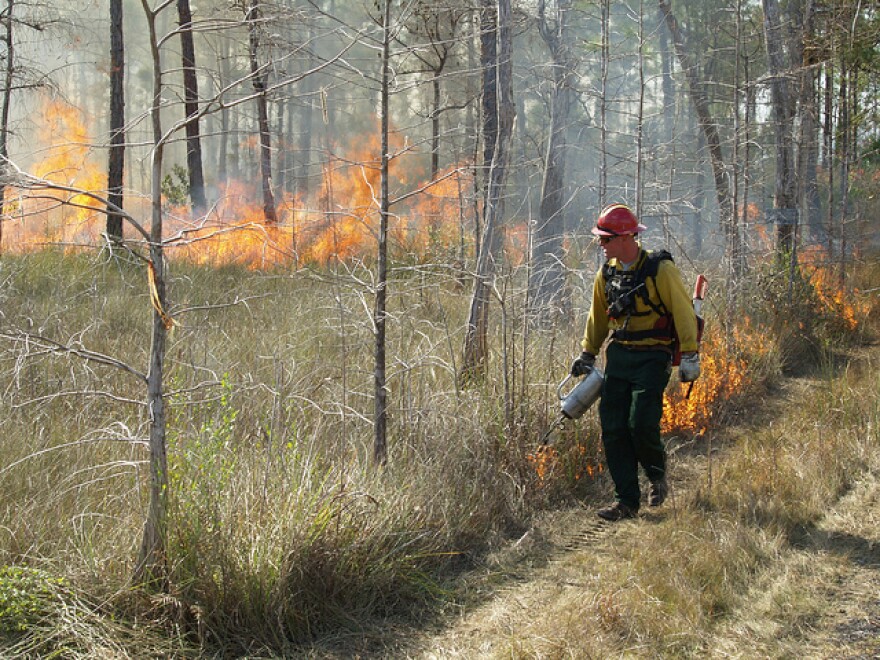In Florida, more than eight of ten wildfires are caused by people. Some are on lit purpose, but most are due to a lack of maintenance on equipment, such as an out-of-tune lawn mower or a vehicle's catalytic converter
Wildfire and global warming
As disruptive as a wildfire can be, a forest fire is not only important to the ecosystem in which it burns, but is integral to slowing climate change.
Forests act as "carbon sinks," absorbing carbon dioxide from the atmosphere through the process of photosynthesis and storing it in trees, vegetation, and down through roots into soil for decades. Called carbon sequestration, trees and shrubs help mitigate the accumulation of greenhouse gases in the atmosphere, thus reducing the impact of global warming.
Periodic natural wildfire is the lynchpin.
Taking a look at the bark on trees in an established forest in Florida you might see that at least one side of the tree's trunk will be blackened from a long-ago wildfire. More importantly, however, the tree itself was not killed by previous fire because flames flicked through the forest at regular intervals.
To imagine what overzealous wildland firefighting can result in, look no further than to scenes of devastation after super-hot wildfires in the western states, where the only things left upright were stone or brick fireplaces.
Tropical rainforests are by far the most important ecosystems for mitigating climate change, and sub-tropical ones like those found in the Everglades are a close second.
Tropical rainforests collectively sequester more carbon from the atmosphere than temperate forests, but they’re also increasingly destroyed for agricultural or residential expansion.
In carbon footprint vernacular, about 4,200 trees is a rough number of how many there are per acre. That many trees can sequester carbon — or keep it below ground and out of the atmosphere -- more than 20 tons for over 30 years.
Wildfires and forest health
Forest fires burn away dead vegetation, allow for new growth to rise from the ashes that provides food for smaller creatures, and clear the woods so larger predators can more easily roam and hunt. Certain trees and shrubs need the heat of a wildfire to trigger the release of their seeds.
As more people build homes in woodsy subdivisions that require wildfire for their long-term environmental health, forestry managers must strike a delicate balance between protecting lives and property in the immediate term, while also preserving the long-term benefits of allowing wildfires to rejuvenate the forest.
This dual responsibility highlights the complex nature of wildland firefighters at work in Big Cypress as they navigate the fine line between taming the menace of wildfires and respecting the natural processes that sustain forests, and help slow global warming.
Forests also provide habitat for a wide range of plant and animal species, supporting biodiversity by creating complex ecosystems and promoting ecological balance.
WGCU is your trusted source for news and information in Southwest Florida. We are a nonprofit public service, and your support is more critical than ever. Keep public media strong and donate now. Thank you.
Environmental reporting for WGCU is funded in part by VoLo Foundation, a non-profit with a mission to accelerate change and global impact by supporting science-based climate solutions, enhancing education, and improving health.
Sign up for WGCU's monthly environmental newsletter, the Green Flash, today.
Copyright 2023 WGCU. To see more, visit WGCU.




